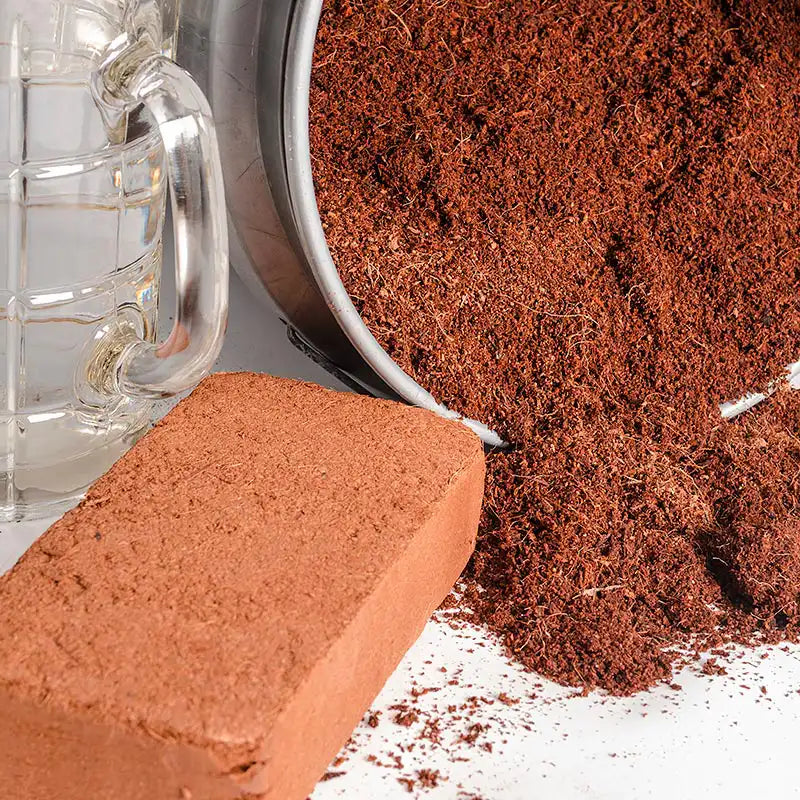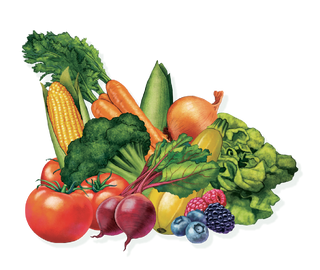Peat Moss Cow Manure Fall leaves What Should You Put in Your Beds
Q. I'm making raised beds for my veggies; four feet wide, as you've suggested. I've filled them with soil and was wondering about amendments. Thus far I've added peat moss and composted cow manure. Do you recommend adding perlite and vermiculite? I'm also tilling in some double-shredded leaves. Is this OK?
---Henry in Ambler, PA
A. No, No, No & No! And thank you for bringing this topic up at the perfect time—just as lots of other people are dealing with their fall leaves; your question is going to help save some gardens.
Now, shredded leaves are great; and double shredded leaves are twice as good. If I were a better man, I'd double shred my leaves, but with deadlines and advancing age I'm happy to get them shredded once. I'll use most of those shredded leaves for compost making and some as a mulch directly on top of my raised beds. But I won't till any into my soil!
The first reason is the tilling itself. While tilling or double-digging is necessary to loosen up the soil when you first make your raised beds, we want to avoid tilling them afterwards, as tilling causes soil nutrients to be lost and brings weed seeds to the surface. (For details, see our 'no-till' articles.)
And one of the biggest benefits of building raised beds is that you create a defined area that you'll never have to step into. No stepping means no soil compaction; the soil in your beds stays naturally light and loose and doesn't need tilling. Henry did one big thing right when he made his beds the recommended four feet wide, because that allows him to reach the centers without stepping inside the framed area. But what he tilled into that framed area could cause serious problems.
Now: There is a long history of tilling in amendments like compost and mushroom soil so that they become well-mixed with the native soil. And cover crops have to be tilled back into the soil to make use of the nutrients in their 'green manure' bio-mass. But compost and mushroom soil are pretty much the same as soil; and cover crops provide mostly nitrogen. But leaves are all carbon. And carbon ties up soil nitrogen and makes it unavailable to plants.
The only worse thing would be to till wood chips into the soil. Their large particle size means they would take years to break down. The much smaller particles of double-shredded leaves are going to be much easier to remediate. And yes, we can remediate this problem.
But not with cow manure! You have to assume that modern bagged manure is collected from factory farms, where the cows are heavily medicated and fed genetically engineered crops that were sprayed heavily with systemic herbicides. And because these herbicides are systemic—meaning that they're absorbed into the genetically engineered plants—the manure (and meat and milk) is going to contain herbicide residues. And although cow manure is nutritionally balanced, it's also kind of 'cold'; it doesn't contain a lot of any of the basic plant nutrients. And the nutrient needed here is nitrogen to balance out the carbon in all those leaves.
Years ago, the answer would have been composted horse manure. It's very nitrogen-rich. But many modern chemical herbicides are so persistent that they survive the composting process even if the animals the manure came from were just grazing on 'regular' sprayed fields. (You'll find lots of warnings about herbicide contamination in horse manure at State Extension websites.)
So I'm going out for coffee instead. Used coffee grounds are widely available, and high in nitrogen. Yes, they're also acidic, but so is the peat moss he used—which was also a bad idea. Peat moss is great for acid-loving plants like blueberries, azaleas and rhododendrons, but not for vegetable beds. So Henry already needs to mix some wood ash or lime into his beds to neutralize that acidity, and with the coffee grounds he's just going to need to use a little more.
And I'm afraid these new amendments will have to be tilled in. Because the peat and leaves were tilled in, any balancing amendments will need to be tilled in as well. So my advice is to collect grounds from local coffee shops, mix some wood ash or lime in with them and till it all into the soil. And since we're already tilling, yes—add some perlite or vermiculite in there as you go; these natural minerals are great at loosening up heavy soils and making it easier for plants to get air around their roots.
Now: how much of each thing?
You really can't use too much perlite or vermiculite; they don't change the soil pH or its nutrient balance; and the volume of coffee grounds and wood ash is going to depend on the initial amount of leaves and peat moss he used. This is where you have to use your best instincts, let it all settle out and then test the soil to see where you are with the pH. You can test it this fall to get a basic idea, but you'll get a more accurate reading in the Spring, after things have settled in together. (And of course, your first year crops will tell the ultimate tale!)
And in the future, only add amendments to the surface of your beds: An inch or two of compost a season to keep the soil fertile and an inch or two of shredded leaves to keep down weeds and attract earthworms.
---Henry in Ambler, PA
A. No, No, No & No! And thank you for bringing this topic up at the perfect time—just as lots of other people are dealing with their fall leaves; your question is going to help save some gardens.
Now, shredded leaves are great; and double shredded leaves are twice as good. If I were a better man, I'd double shred my leaves, but with deadlines and advancing age I'm happy to get them shredded once. I'll use most of those shredded leaves for compost making and some as a mulch directly on top of my raised beds. But I won't till any into my soil!
The first reason is the tilling itself. While tilling or double-digging is necessary to loosen up the soil when you first make your raised beds, we want to avoid tilling them afterwards, as tilling causes soil nutrients to be lost and brings weed seeds to the surface. (For details, see our 'no-till' articles.)
And one of the biggest benefits of building raised beds is that you create a defined area that you'll never have to step into. No stepping means no soil compaction; the soil in your beds stays naturally light and loose and doesn't need tilling. Henry did one big thing right when he made his beds the recommended four feet wide, because that allows him to reach the centers without stepping inside the framed area. But what he tilled into that framed area could cause serious problems.
Now: There is a long history of tilling in amendments like compost and mushroom soil so that they become well-mixed with the native soil. And cover crops have to be tilled back into the soil to make use of the nutrients in their 'green manure' bio-mass. But compost and mushroom soil are pretty much the same as soil; and cover crops provide mostly nitrogen. But leaves are all carbon. And carbon ties up soil nitrogen and makes it unavailable to plants.
The only worse thing would be to till wood chips into the soil. Their large particle size means they would take years to break down. The much smaller particles of double-shredded leaves are going to be much easier to remediate. And yes, we can remediate this problem.
But not with cow manure! You have to assume that modern bagged manure is collected from factory farms, where the cows are heavily medicated and fed genetically engineered crops that were sprayed heavily with systemic herbicides. And because these herbicides are systemic—meaning that they're absorbed into the genetically engineered plants—the manure (and meat and milk) is going to contain herbicide residues. And although cow manure is nutritionally balanced, it's also kind of 'cold'; it doesn't contain a lot of any of the basic plant nutrients. And the nutrient needed here is nitrogen to balance out the carbon in all those leaves.
Years ago, the answer would have been composted horse manure. It's very nitrogen-rich. But many modern chemical herbicides are so persistent that they survive the composting process even if the animals the manure came from were just grazing on 'regular' sprayed fields. (You'll find lots of warnings about herbicide contamination in horse manure at State Extension websites.)
So I'm going out for coffee instead. Used coffee grounds are widely available, and high in nitrogen. Yes, they're also acidic, but so is the peat moss he used—which was also a bad idea. Peat moss is great for acid-loving plants like blueberries, azaleas and rhododendrons, but not for vegetable beds. So Henry already needs to mix some wood ash or lime into his beds to neutralize that acidity, and with the coffee grounds he's just going to need to use a little more.
And I'm afraid these new amendments will have to be tilled in. Because the peat and leaves were tilled in, any balancing amendments will need to be tilled in as well. So my advice is to collect grounds from local coffee shops, mix some wood ash or lime in with them and till it all into the soil. And since we're already tilling, yes—add some perlite or vermiculite in there as you go; these natural minerals are great at loosening up heavy soils and making it easier for plants to get air around their roots.
Now: how much of each thing?
You really can't use too much perlite or vermiculite; they don't change the soil pH or its nutrient balance; and the volume of coffee grounds and wood ash is going to depend on the initial amount of leaves and peat moss he used. This is where you have to use your best instincts, let it all settle out and then test the soil to see where you are with the pH. You can test it this fall to get a basic idea, but you'll get a more accurate reading in the Spring, after things have settled in together. (And of course, your first year crops will tell the ultimate tale!)
And in the future, only add amendments to the surface of your beds: An inch or two of compost a season to keep the soil fertile and an inch or two of shredded leaves to keep down weeds and attract earthworms.


